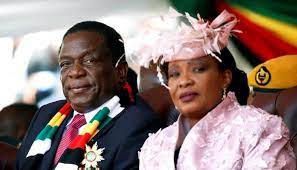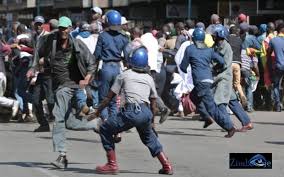Brenna Matendere
Harare—The army killings during the 2018 deployment of soldiers to quell public violence has returned to haunt President Emmerson Mnangagwa and Vice President Constantino Chiwenga who have been designated under a new regime of specific sanctions by the United States government.
The White House on Monday announced that it was abandoning the wider-reaching sanctions it imposed on Zimbabwe 21 years ago, replacing them with the narrower and more targeted ones under the Global Magnitsky Programme run through the US Department of Treasury.
In statement released on Monday to reinforce the new sanctions, the US National Security Council spokesperson, Adrienne Watson, noted that Zimbabwe continued to be a theatre for “gross abuses of political, economic and human rights” as the Mnangagwa administration was targeting civil society amid “severe restrictions on political activity”.
Topping the list of the individuals just designated are President Mnangagwa, his co-deputy Chiwenga and the first lady, Auxillia.

Washington noted that President Mnangagwa was abating corruption through the smuggling out of gold and diamonds while he was also blameworthy for using the military to abuse citizens’ rights.
“Mnangagwa also oversees Zimbabwe’s security services, which have violently repressed political opponents and civil society groups,” Watson said in his Monday statement.
On 1 August 2018, as the Zimbabwe Electoral Commission (ZEC) was tallying results of the harmonised elections, President Mnangagwa deployed soldiers to reinforce anti-riot police efforts in suppressing an estimated 4000 opposition MDC Alliance supporters who were protesting the delay in announcing results.

According to a December 2018 report by a commission of inquiry headed by former South African president, Kgalema Motlanthe, six citizens were killed by the army, which the fact-finding mission also noted had unduly wrested the leadership of the anti-riot deployment from the Zimbabwe Republic Police (ZRP).
All the six victims—Gavin Dean Charles (45), Silivia Maphosa (53), Ishmael Kumire (41), Jealous Chakandira (21), Brian Zhuwawo (26) and Challenge Tsuro (20) died from hypovolemic shock due to gunshot injuries.
The commission said the force used by the army was “unjustified and disproportionate”.
Commander of the Zimbabwe Defence Forces (ZDF), Phillip Valerio Sibanda, testified to the commission that he had been advised by Chiwenga, who was doubling as Defence minister at that time, that Mnangagwa had given verbal authorisation for the military deployment.
This entailed that both Chiwenga and Mnangagwa okayed the military deployment.
While Mnangagwa deplored the use of live ammunition by the army then, he has failed to follow through on the Motlanthe commission recommendations that include bringing the involved soldiers to justice.
As head of national intelligence in the early years of independence attained in 1980, Mnangagwa was accused of masterminding mass killings in southern Zimbabwe in an operation dubbed Gukurahundi, which featured a Korean-trained crack military outfit
In January 2019, the Mnangagwa government also deployed hundreds of soldiers to deal with pop-corn protests that had been ignited by a sharp rise in the prices of fuel, resulting in an unconfirmed 17 deaths.
During the protests, Owen Ncube, a close confidante of Mnangagwa who was then State Security minister, authorised the shutting down of the internet.
The 2019 internet disruption was extended to prevent the use of VPN circumvention tools by demonstrators.
The country’s largest cellular provider, Econet Wireless Zimbabwe (EWZ), confirmed that the government issued a directive blocking all internet access during the protests.
The High Court subsequently ruled that the internet shutdown was illegal.
Ncube is also on the new sanctions list, together with the Central Intelligence Organisation (CIO) deputy director general, Walter Tapfumaneyi who from late 2022 has been coordinating the activities of the Forever Associates of Zimbabwe (FAZ), a spook-linked affiliate of Zanu PF that terrorised and suppressed voters during the 2023 harmonised elections time.
Also designated are Kudakwashe Tagwirei, the owner of Sakunda Holdings, a business outfit that has been named as a conduit for money laundering, his wife, Sandra, a close associate and advisor, Obey Chimuka who runs the Fossil Group of companies named in scandalous road projects, and Oppah Muchinguri, the current Defence minister and Zanu PF chairperson.
Tagwirei’s Sakunda and Fossil Agro as well as Fossil Contracting led by Chimuka are the only three companies on the Treasury sanctions list.
Mnangagwa featured prominently in a 2023 Al Jazeera documentary in which he was named by another of his close cronies, Uerbert Angel, as having received bribes to facilitate the high-level smuggling of gold and money laundering.
His wife was also named by a CIO operative as having been involved in the attempted smuggling of gold through the Robert Gabriel Mugabe International Airport in Harare.
A Mnangagwa relation and gold dealer, Henrietta Rushwaya, was arrested at the airport in 2020 when she was found in possession of the bullion that led to the implication of the first lady.


Comments are closed.